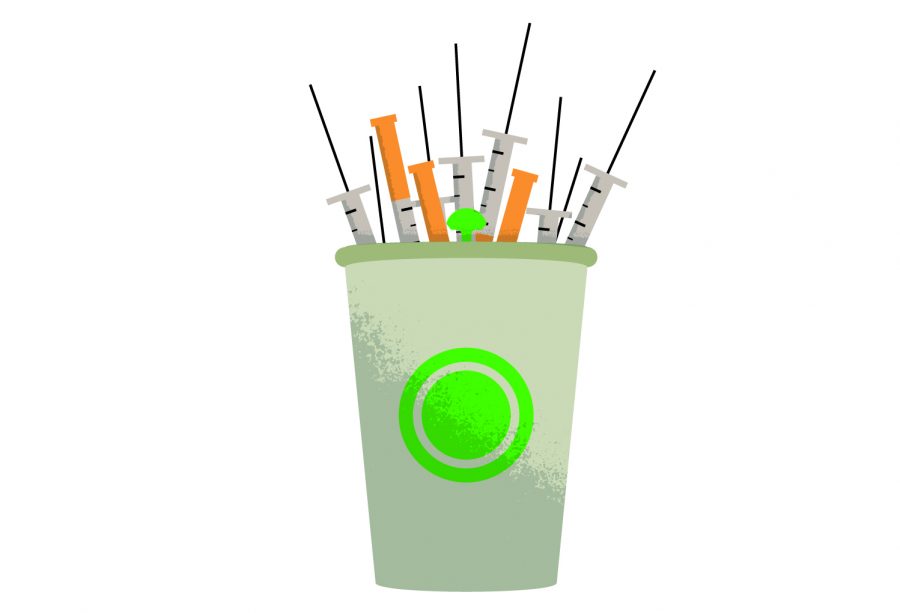EDITORIAL: Increasing access means creating accommodations
Increasing access means creating accommodations
January 21, 2019
Starbucks has agreed to install needle disposal boxes in “high-risk” bathrooms after more than 3,700 employees signed a petition requesting the action, according to a Jan. 10 USA Today article. The company is on the right track. In May, Starbucks enacted an open-bathroom policy, and workers have since complained of finding discarded needles and syringes in bathrooms. Cleaning up needles could result in exposure to various blood-borne illnesses, including HIV and hepatitis, in addition to potentially causing injury.
Creating an environment that puts employees and the general public at risk is unacceptable, and Starbucks is doing the right thing by listening to and addressing the valid concerns of its employees. More companies should follow this example. Intravenous drug use is a sad reality of society, but Starbucks has an obligation to reduce harm if it is going to commit to its open-bathroom policy.
Problems cannot be ignored, and further work will be needed to see what other issues will have to be addressed. By adding needle disposal boxes, Starbucks can prove it is committed to social justice, not just improving the way the public looks at it.
The needle initiative at Starbucks is especially relevant because Starbucks, along with other companies, launched a campaign in Chicago four years ago to hire 100,000 Opportunity Youth. These young workers are defined as 16–24 year olds who are not working or in school.
For the past year, Starbucks has worked toward being a leader in corporate social justice and creating an environment that is welcoming to all. If the company is truly committed to that mission, needle disposal boxes are a necessity. These boxes should be placed in all public bathrooms, not just those in Starbucks or those deemed as “high-risk” because all employees need protection. Sharps may end up in bathrooms for reasons beyond drug use, including medical issues, and workers should not be put at risk because of that. Members of the public have specific needs, and companies and local governments should be doing everything they can to meet them. Ignoring serious problems, such as intravenous drug use, does not make them go away but does make them more dangerous.
This policy is a step in the right direction, but corporations can do more to increase the benefit their contributions have on society beyond providing a free bathroom or place to hang out. Companies like Starbucks, which sell a brand focused on sustainability and ethical choices, may not have a legal obligation to do good, but they should have a moral incentive. This is not an issue of promoting or encouraging drug use but an issue of public health and safety.
Needle disposal boxes may seem inconsequential in the grand scheme of things, but this can be a launching point for other issues of health, safety and accessibility as we work toward a more inclusive society. Refusing to turn away those in need—and, moreover, accepting them with open arms as open-bathroom policies do—means making accommodations for the people we often push to the fringes. Assessing risks and reducing harm are the first steps in creating a culture that is willing to put in the work of social justice. Taking these first steps is admirable. With policies like these, we can prove we are not just talking about important issues to seem educated or informed but that we can make concrete changes that matter.








